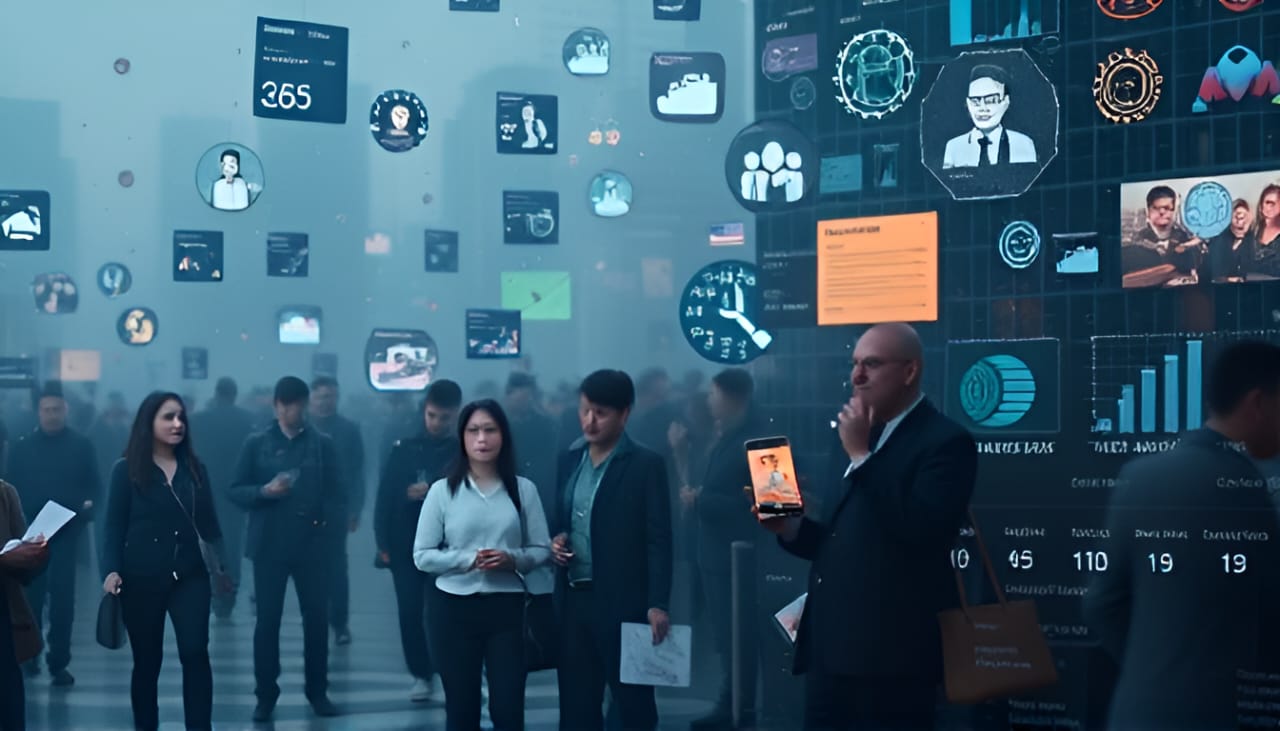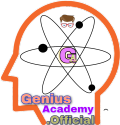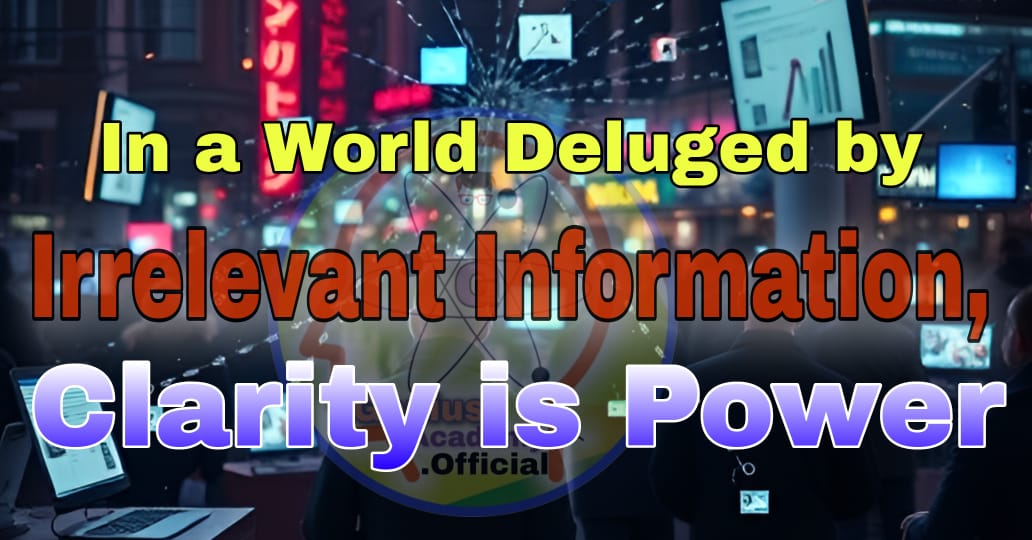
“In a World Deluged by Irrelevant Information, Clarity is Power.”
Introduction:
The world we live in today is overflowing with information. In the age of the internet, smartphones, and constant connectivity, we have unprecedented access to knowledge, news, opinions, and data. However, much of this information is irrelevant or even misleading. From social media to advertising, we are bombarded with content that often distracts us from what truly matters. In such a world, the ability to filter through the noise, identify what is important, and communicate with precision and clarity has become a superpower. As the saying goes, “In a world deluged by irrelevant information, clarity is power.” This statement underlines the critical role that clarity plays in our personal and professional lives, our ability to make sound decisions, and our pursuit of truth and understanding in a complex world.
The Information Overload Crisis
The digital age has made it easy to create and distribute information. Every day, billions of pieces of content are uploaded to social media platforms, news websites, blogs, and video-sharing sites. According to recent statistics, the amount of data created globally each year is growing at an exponential rate, with around 2.5 quintillion bytes of data being produced each day (IBM estimates). This staggering volume of information creates a sense of information overload, where individuals are overwhelmed by the sheer amount of data they must sift through.
Information overload can lead to cognitive fatigue, making it difficult to process and retain valuable knowledge. Instead of empowering people, excessive and irrelevant information can create confusion and hinder decision-making. Moreover, because anyone can publish content online, the quality of information varies widely, and misinformation and trivial content often overshadow valuable insights. As a result, distinguishing between essential information and irrelevant noise becomes a skill of paramount importance.
The Role of Clarity in Personal and Professional Success
In both personal and professional settings, clarity of thought and communication are essential for success. When we have clarity, we are better able to focus on what is truly important, set meaningful goals, and make decisions that align with our values and objectives. In contrast, lack of clarity often leads to indecision, confusion, and wasted effort.
For instance, in the workplace, effective leaders know that clear communication is the cornerstone of team productivity. Leaders who can clearly convey their vision and expectations inspire confidence and motivate their teams to work towards shared goals. On the other hand, unclear or ambiguous instructions can lead to misunderstandings, errors, and low morale. Clarity in business not only helps achieve objectives more efficiently but also builds trust among colleagues and stakeholders.
Similarly, in personal life, clarity helps individuals define their values, priorities, and boundaries. People who understand their purpose and goals are less likely to be swayed by distractions and irrelevant information. They can navigate challenges with a sense of direction and remain committed to their chosen path. In a world that constantly vies for our attention, clarity becomes an anchor that keeps us grounded and focused on what truly matters.
The Link Between Clarity and Effective Decision-Making
In a world overflowing with options and opinions, decision-making has become more complex than ever. Whether it is a decision about one’s career, financial investments, health, or relationships, the availability of abundant yet conflicting information can make the process overwhelming. However, clarity can act as a compass in such situations, helping individuals evaluate their choices more objectively and make decisions with confidence.
When we approach decisions with clarity, we are better able to filter out irrelevant information and focus on the factors that genuinely matter. This ability to distill information down to its essence is crucial for sound decision-making. For instance, consider someone researching health and fitness information online. They are likely to encounter a myriad of fad diets, conflicting workout advice, and varying opinions on what constitutes a healthy lifestyle. If they have clarity about their health goals—whether it is to improve cardiovascular fitness, gain muscle, or reduce stress—they can focus on information that is relevant to their objectives, ignoring the rest. This clarity empowers them to make choices that serve their personal goals instead of being swayed by every new trend.
The Pursuit of Truth in the Age of Misinformation
One of the most significant challenges of our time is the spread of misinformation and fake news. With the rise of social media and online platforms, false or misleading information can spread rapidly, influencing public opinion and behavior. In a world where anyone can publish content, it becomes increasingly difficult to discern what is true and reliable. This deluge of information, much of which is irrelevant or deceptive, has created an environment where the pursuit of truth requires critical thinking and discernment.
In the face of misinformation, clarity is essential for understanding complex issues and forming opinions based on facts rather than false narratives. Critical thinking—analyzing and evaluating information to make reasoned judgments—is closely tied to clarity. It requires the ability to ask the right questions, assess sources of information, and separate credible information from unreliable claims. For example, during a public health crisis like the COVID-19 pandemic, people were bombarded with conflicting information from various sources. Those who sought clarity, relying on verified data from reputable sources, were better able to make informed decisions about their health and safety.
The Power of Clear Communication in a Complex World
In a world filled with noise, the ability to communicate clearly is more important than ever. Clear communication enables individuals to express their ideas, beliefs, and emotions effectively, facilitating understanding and connection with others. Whether it is in personal relationships, social discourse, or global diplomacy, clarity helps bridge differences and fosters cooperation.
One example of the power of clear communication is found in diplomacy. International relations are often marked by cultural, political, and ideological differences that can lead to misunderstandings and conflict. However, diplomats who communicate with clarity and transparency can help build trust and find common ground, even in contentious situations. For instance, during peace negotiations or trade talks, diplomats who articulate their positions clearly are more likely to reach mutually beneficial agreements.
Clear communication is also crucial in addressing global challenges, such as climate change, poverty, and human rights. These issues are complex and interconnected, requiring coordinated action from various stakeholders. Leaders, activists, and organizations working to address these problems must convey their messages with clarity to inspire collective action. When messages are clear, people are more likely to understand the urgency of these issues and become motivated to contribute to solutions.
Developing Clarity in a World of Distractions
In a world dominated by distractions, achieving clarity requires conscious effort. Here are some strategies to cultivate clarity:
- Set Clear Goals and Priorities:— Having a clear sense of purpose and priorities can help filter out distractions. By focusing on what is most important, individuals can direct their energy and attention toward achieving meaningful objectives.
- Practice Mindfulness:— Mindfulness helps individuals become more aware of their thoughts and emotions, allowing them to focus on the present moment. By practicing mindfulness, people can reduce mental clutter and achieve greater clarity.
- Seek Reliable Sources of Information:— In the age of misinformation, it is essential to verify the credibility of information sources. By seeking out reputable sources and avoiding sensationalist content, individuals can develop a clearer understanding of issues.
- Reflect Regularly:— Taking time for self-reflection can help clarify thoughts, goals, and values. Regular reflection allows individuals to reassess their priorities and make adjustments based on new insights.
- Learn to Say No:— In a world that constantly demands our attention, saying no to irrelevant information and unnecessary commitments is vital for maintaining clarity.
Conclusion
In a world awash with irrelevant information, clarity has become a precious resource. The ability to discern what truly matters, make informed decisions, and communicate effectively is a powerful asset. Clarity empowers individuals to cut through the noise, pursue truth, and stay focused on their personal and professional goals. As we continue to navigate an era of information overload, the pursuit of clarity will remain a cornerstone of success, resilience, and wisdom. Whether in decision-making, communication, or the search for truth, clarity is the force that allows us to navigate complexity with confidence and purpose.
#World Deluged by Irrelevant Information
#Irrelevant Information

